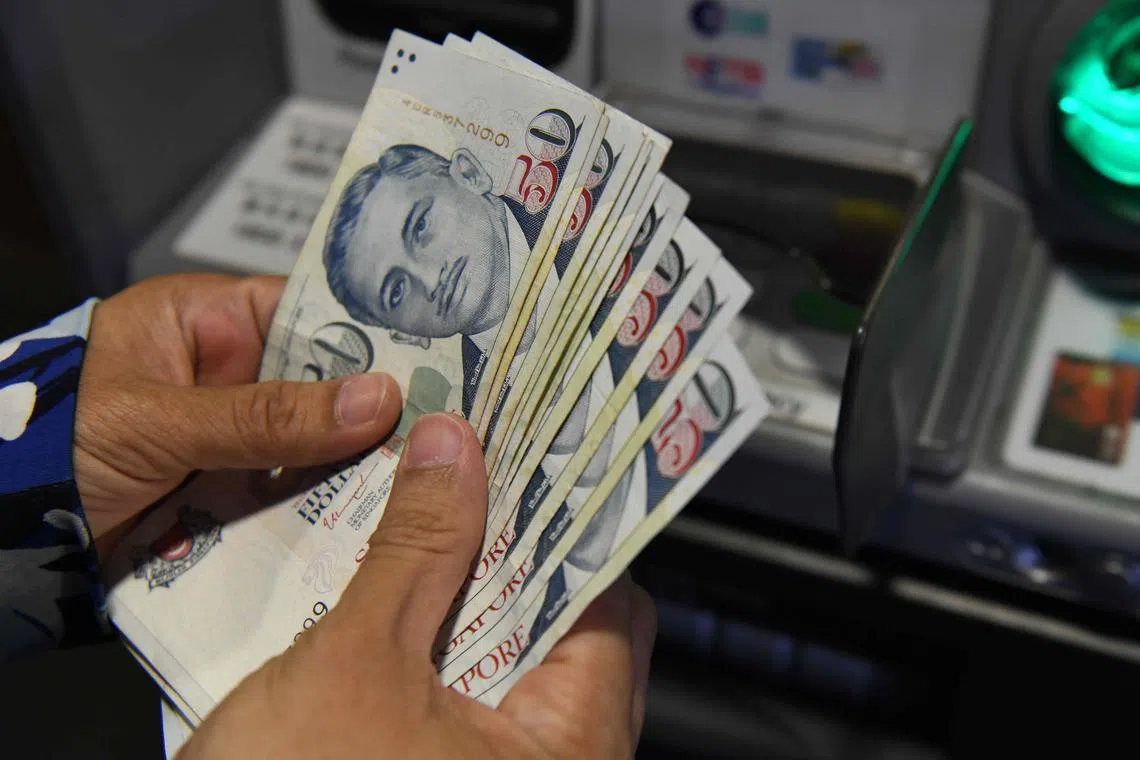Latest T-bill auction offers 4.2% yield, demand remains healthy
Sign up now: Get ST's newsletters delivered to your inbox

All applicants who put in a non-competitive bid in Jan 5's auction received their full allocation of T-bills at 4.2 per cent.
PHOTO: AFP
SINGAPORE – The yield for the year’s first auction of six-month Treasury bills (T-bills) is 4.2 per cent – down from 4.28 per cent in the Dec 21 auction and 4.4 per cent on Dec 8.
Yields have been on something of a roller coaster in recent years.
They fell below 1 per cent in April 2020 – the middle of the pandemic – before going back above 1 per cent in March 2022, with steady rises since. They hit around 3 per cent in September 2022, 4.19 per cent in October and the recent high of 4.4 per cent in December,
UOB rates strategist Victor Yong said yields will likely go higher, particularly for shorter maturities of six months and one year, given rising rates in the United States.
But he said the incremental rises in yields will not be as dramatic as in 2022.
UOB expects US rates to reach 5.25 per cent this quarter.
All applicants in Thursday’s auction who put in a non-competitive bid – this means they did not specify the yield they would like – received their full allocation of T-bills at 4.2 per cent.
Those who put in a competitive bid – they specified the yield they wanted – either received some T-bills or went away empty-handed, depending on what yield they bid.
Semi-retired Kevin Lim, 57, lodged a bid at 4 per cent for a five-figure sum. Because it was below 4.2 per cent, he gets his full allotment.
Mr Lim, who has been applying for T-bills in tranches of five-figure sums, said any yield above 4 per cent is a reasonable return, noting: “It beats fixed deposits and it is low risk.”
An applicant who bid at 4.4 per cent for $10,000 worth of T-bills will get nothing because his bid was over the 4.2 per cent final yield.
Thursday’s auction showed that demand remained healthy, with $12 billion worth of applications for $4.7 billion of T-bills offered.
That made a subscription rate of 2.56: There were $2.56 applications for each $1 on offer.
Interest in T-bills and other government securities like Singapore Savings Bonds has been strong as investors look for ways to earn higher returns and beat inflation.
But Ms Lee Meng, executive financial services consultant at Gen Financial Advisory, said investors should have sufficient cash and cash equivalents on hand before locking up money in more inflexible investments.
“Liquidity for a financial plan is like oxygen for the body. We must have sufficient liquidity to ensure we can withstand short-term financial shocks,” she added.
Mr Loh Yong Cheng, lead of the advisory team at Providend, said investors could put half of their emergency funds into high-interest savings accounts and the rest into Singapore Savings Bonds, which can be easily redeemed.
Mr Loh said six-month T-bills can be used for short-term expenses like a loan repayment as they have a short maturity period.
Longer-term expenses like a child’s education or retirement are better served by a globally diversified portfolio of equities and bonds, which “should be able to give higher expected returns over time and fight long-term inflation”, he added.


